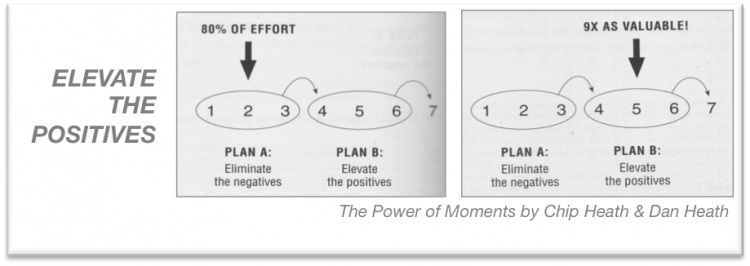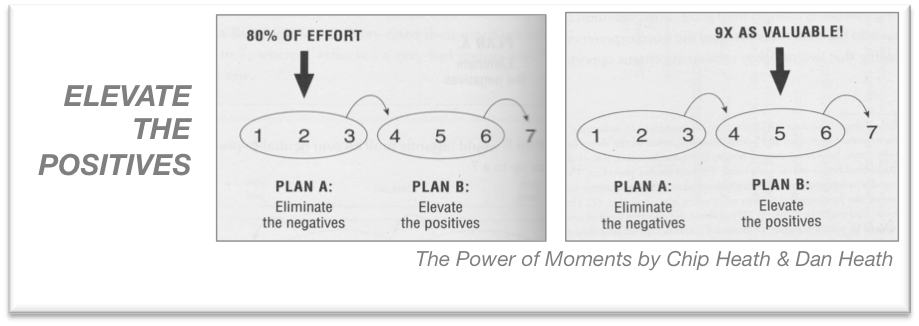
Inspired by Jamsetji Tata’s approach to lift up the best and the most gifted and not just prop up the weakest, I started to look for its application in business. I did not expect to find an immediate validation, but imagine my surprise (and excitement) when I found an interesting narrative in a book I was reading over Christmas (The Power of Moments by Chip Heath & Dan Heath).
In the book, the authors introduce a study undertaken with thousands of executives from consumer experience, which shows that on an average most companies spend 80% of their resources trying to improve the experience of severely unhappy customers. This is hardly surprising – after all when a customer has a satisfaction level of 5 or 6, they are reasonably happy and our natural response is to eliminate the worst customer problems and fix the issues of the unhappy customers who are at satisfaction levels 1 or 2.

The interesting aspect of the study was to map the data to a financial value of the customer. They referred to model on financial value of customer that has been developed by Forrester and suggests that the happiest people in the industry tend to spend more. The data from the model suggests that moving a customer from a satisfaction level of 4 to 7 generates more additional spending than moving from a level of 1 to 4. The results are illuminating – if you elevate the positives, you earn nine times more revenue than if you eliminate the negatives.
The thought on the table is to channelize the energy to nudge the neutrals (satisfaction levels 4-6) to positives (level 7 and above), rather than invest in moving the unhappy customers (satisfaction level 1-3) to neutral.
This maps to adding features and services that delight customers and to explicitly focus on creating such positive moments (there can be many definitions of positive moments but we can just start with the elements of elevation, insight, pride and connection that Chip & Dan introduce in their book).
Of course I am not advocating abandoning the unhappy customers or ignoring basic problems – instead I am highlighting the need to reorient ourselves – to review our priorities, to move beyond fixing problems, to allow resources for building extraordinary experiences… I am simply reminding ourselves of the missed opportunity… the opportunity to create experiences that stays with us…
This note is a page from my diary – UnLearning, which records all those random thoughts (ideas and fears…) that make me live day-by-day.




Leave a reply